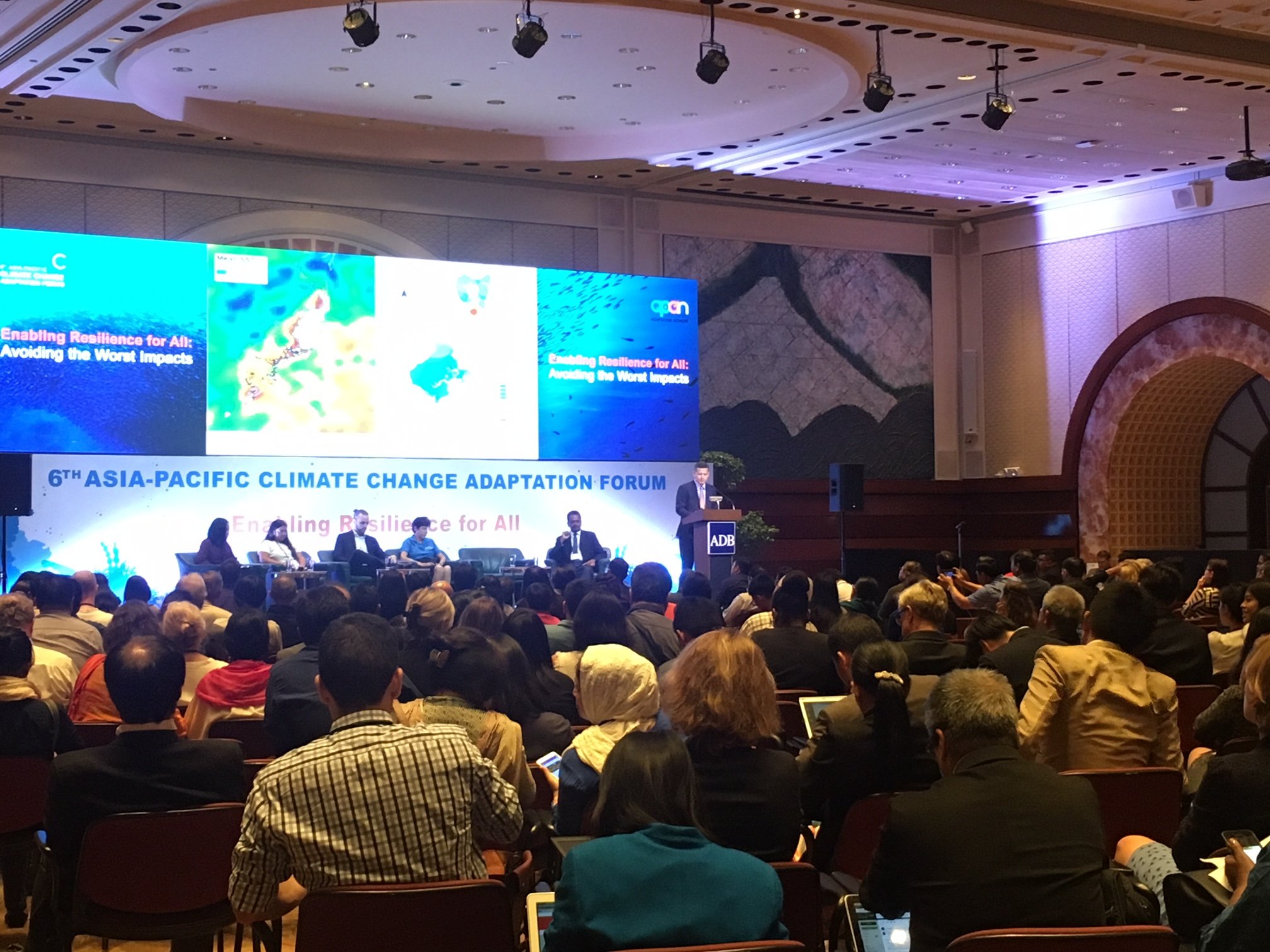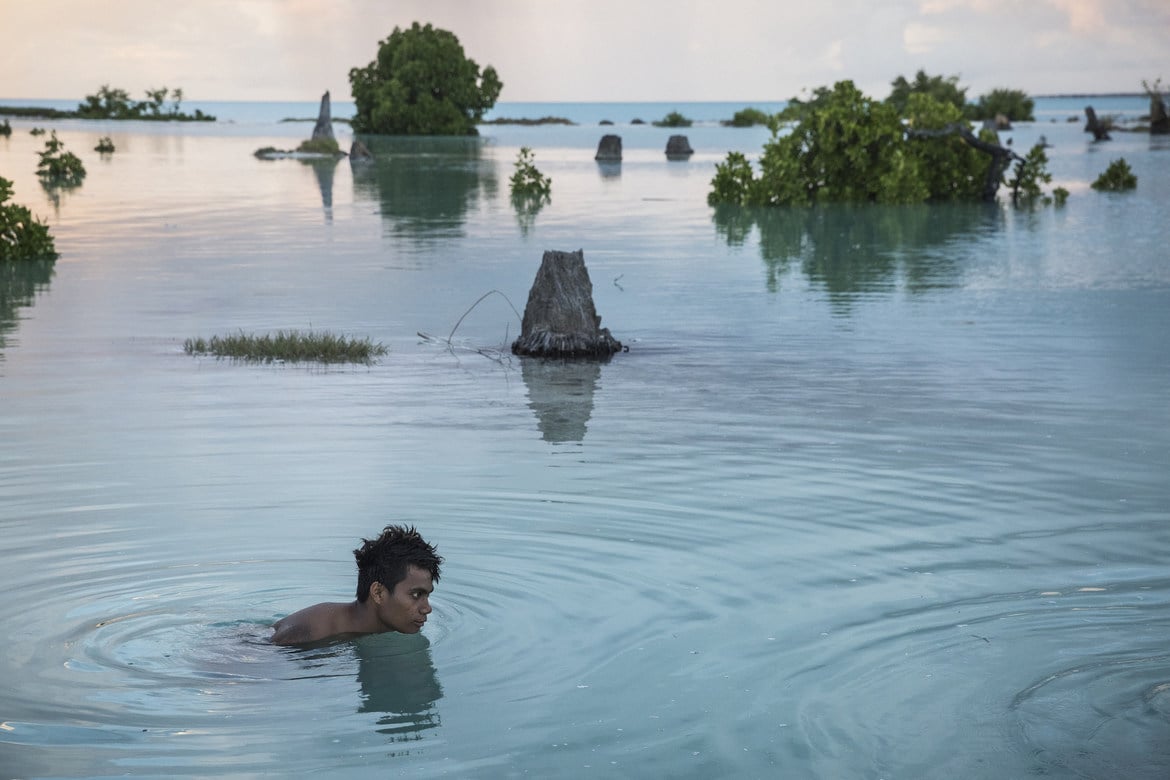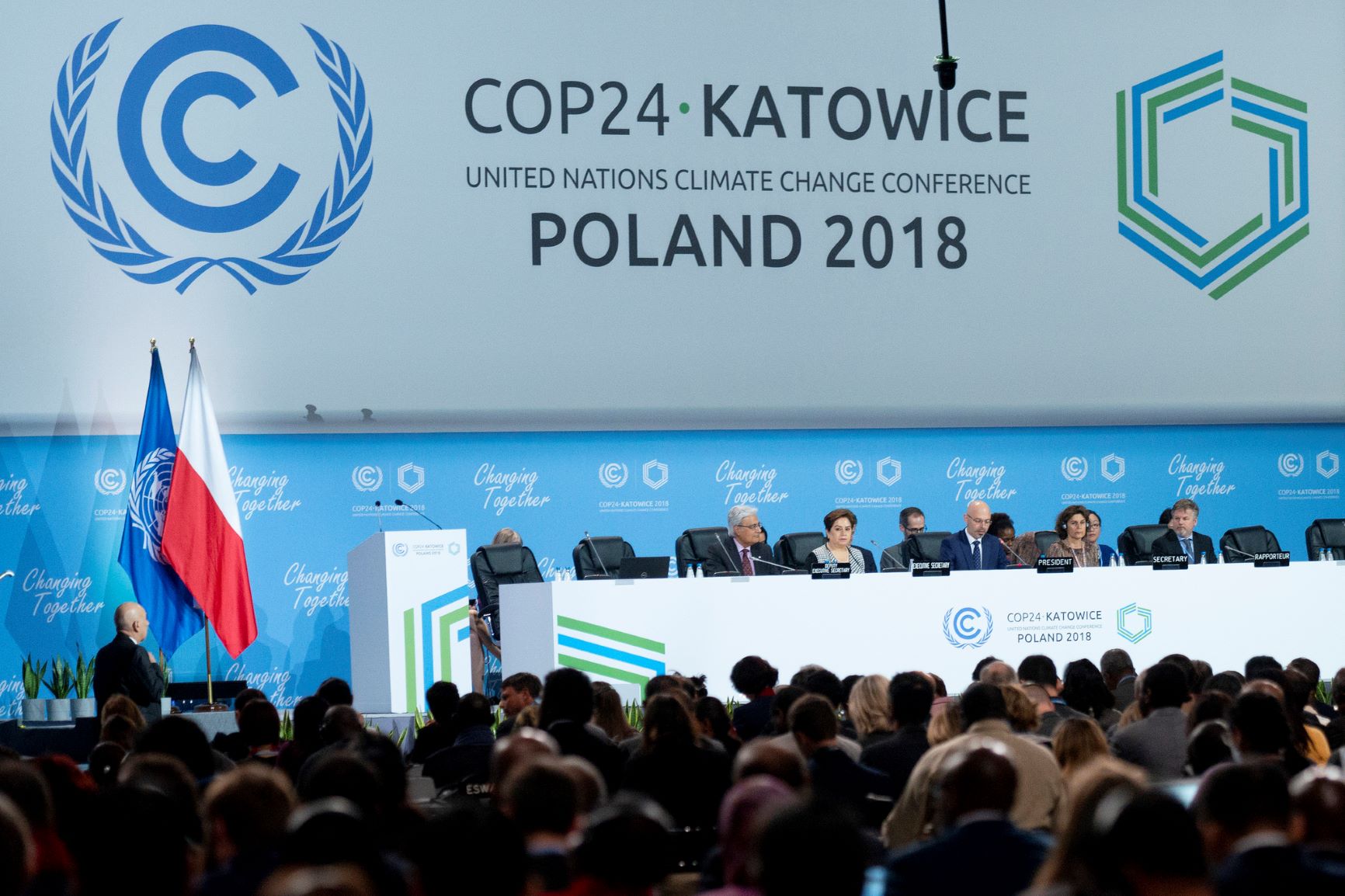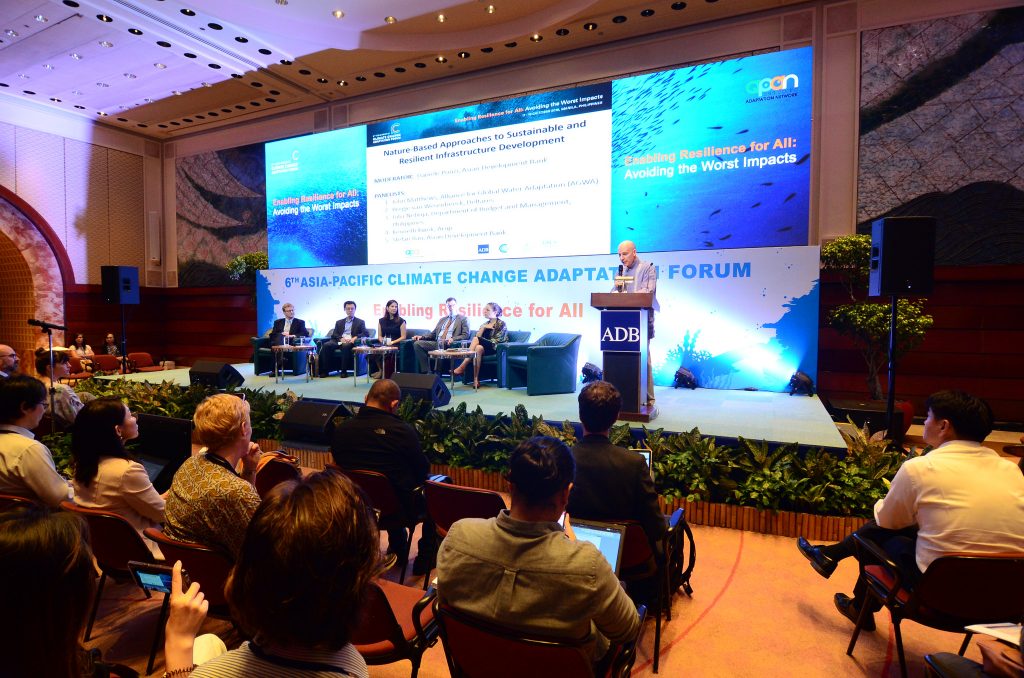
MANILA, Philippines–Nowhere is climate change more evident than in small, low-lying island nations, where entire populations face existential risks to the foreseen intensification of storm surges, cyclones and rise in sea levels. The Pacific Islands have been hit particularly hard. However, people in the region are determined to adapt to these growing realities.
In Palau, communities are concerned about the growing impact of climate change, said Francisca Skiwo a community leader from Kayangel in Palau which was heavily damaged by typhoon Sisca in 2013. “ We are really getting worried. If sea level does rise more, our island is going to be hit pretty hard.”
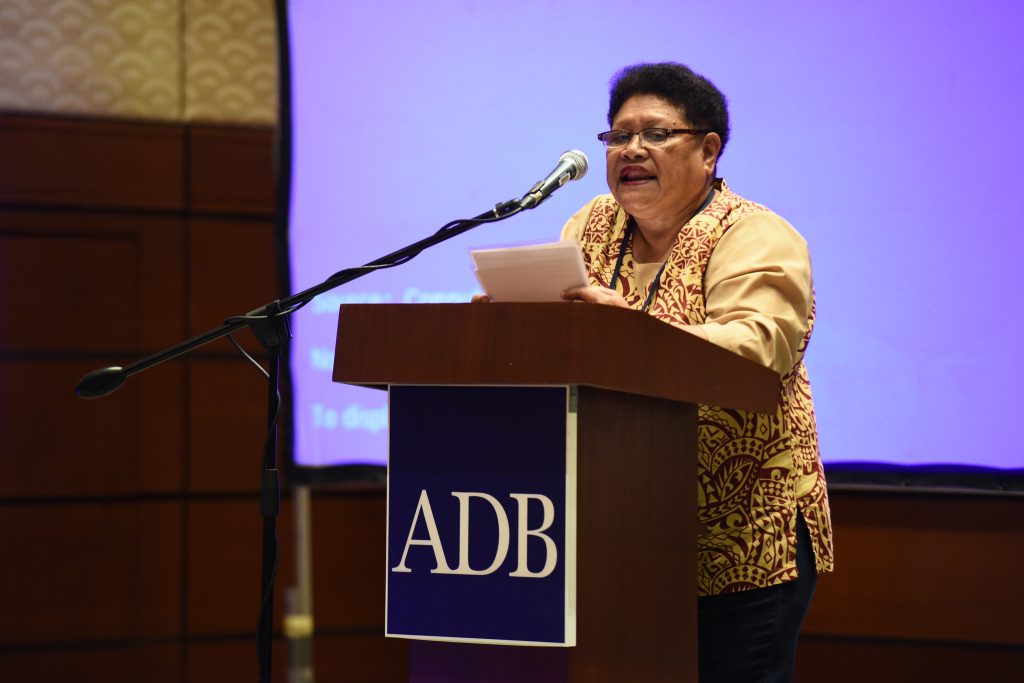
Skiwo, a retired teacher, and many other community leaders in Kayangel, has volunteered in helping her community identify adaptation measures using traditional knowledge-based practices to address the impacts of climate change and to better prepare their communities to unexpected disasters such as typhoons.
Speaking before the participants to the 6th Asia Pacific Climate Change Adaptation Forum which was held from October 17-19 at the Asian Development Bank in Manila, Philippines, Skiwo lamented that people in Palau mostly depend on the ocean and that they do not want to lose their cultural ties, traditional livelihoods and deep connection to their land.
Climate change as a challenge for all
Given these threats to the economy, stability and human security of the Pacific countries, governments have recognized climate change as a challenge for the ultimate survival of its people, said Jonah Auka, Manager of the Projects Adaptation of the Climate Change and Development Authority of Papua New Guinea.
“ Most Pacific Island countries have identified sectoral impacts of climate change on agriculture, fisheries, transport, tourism, coral reefs and human health,” Auka said. “ When the PNG climate change office was established in 2010, we tried to come up with ways to resource finance, formulate adaptation technical committees from all sectors. We believe that climate adaptation is a development issue and we need to achieve a common goal in addressing it.”
Auka said the PNG was able to establish early warning systems, distribute flood-resistance and drought-tolerant rice, mapping and assessment of vulnerable communities, capacity building of local communities and mainstreaming climate adaptation throughout the country.
“ The opportunity now rests with integrating, that budgetary and mainstreaming down to the provincial and local level, which has begun but is still a work in progress. Opportunities also include localizing national frameworks effectively,” Auka explained.
In Nauru, on the other hand, the country is confronted by many challenges in terms of addressing climate change policies and plans. Branessa Tsiode from the Ministry of Finance in Nauru explained that the policies and plans that involve climate change are not comprehensive. Tsiode added that the change in administration is also a challenge in their planning and implementation due to continuity and political prioritization. Local people and communities as well are not well-informed and that some communities prefer revenue from mining to conserving environment and natural resources. She also said that Nauru lacks the manpower and technical capacity to monitor and evaluate the policies and plans for efficiency.
“ Nauru established a couple of policies and plans for climate change but do not harmonize with the reality of the island and not address the issue of mining and other issues. The solutions proposed was to harmonize the policies as well as create opportunities for local communities to communicate with leaders and come up with realistic actions,” she said during a panel discussion at the forum.
Yimnang Golbuu, chief executive officer of the Palau International Coral Reef Center said climate change has gravely impacted coral reefs of Palau and other countries in the Pacific.
“ Palau is trying to preserve its coral reefs in the face of climate change by identifying more critical areas to preserve and by breeding resilient corals to restore damaged areas. Coral reefs provide vital habitat for fish and other sea life, and help protect the shoreline from storms and erosion,” Golbuu said.
Implement of climate action plans
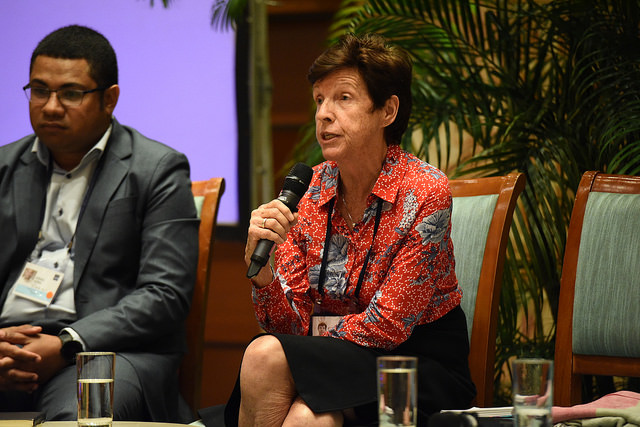
Meanwhile, Gillian Cambers of the Secretariat of the Pacific Community, argued in one of the panel discussions at the forum that there are three objectives for realizing climate change resilience, particularly in the Pacific: aligning development to gender, down-scaling to local level action, and integrated approaches.
“ While the Pacific Island states have many excellent plans in those key areas, the best way forward now is immediate implementation of those plans, albeit with careful monitoring and evaluation to ensure that necessary and inevitable adjustments are made,” Cambers explained.
She said that there has been excellent climate change planning in countries in the Pacific with great planning instruments in the past 10 years.
“ A challenge is to stop refining the planning process and begin implementation. Focus on a sector and how to make that sector climate resilient. Another challenge is the burden of international frameworks on small Pacific Islands,” Cambers said.
Not a stand-alone environmental issue
In the ADB study, The Economics of Climate Change in the Pacific 2013, it stated that climate change is not a stand-alone environmental issue but a development agenda that the Pacific countries need to give high priority. If not adequately addressed, climate change could overturn the region’s development achievements.
Important policy recommendations from the ADB study include:
- mainstreaming climate change actions in development planning is crucial to minimize the impacts of climate change. Mainstreaming climate actions requires merging new development efforts into a comprehensive policy framework that combines various sector approaches, policies, and strategies for achieving climate-resilient and sustainable development.
- A forward-looking adaptation strategy is key to addressing the multitude of climate change impacts, with low-regret options and built-in flexibility as a basis for a robust adaptation pathway. To effectively address a wide range of uncertain climate outcomes, national development planning efforts should consider adopting a forward-looking adaptation strategy.
- Adopting a risk-based approach to adaptation and disaster-risk management can help prioritize climate actions and increase the cost-efficiency of adaptation measures. The region’s disaster-risk management must be better aligned with climate change risks.
- Climate proofing infrastructure can help improve long-term sustainability. Climate proofing should be considered as early as possible in the project design stage. Although climate proofing could increase the upfront costs of the infrastructure projects, such higher costs could be economically justified by lower total life cycle costs over the long lifetime of most infrastructure and by the high probability of climate-related damage in the Pacific.
- Improving knowledge and the capacity to deal with climate uncertainties is a key issue for the Pacific countries.
- Improved access to climate finance is critical for ensuring continued economic growth and development for the Pacific countries. Regardless of the climate scenario and modeling approach, the estimated cost of climate change adaptation is considerable.
- Successful adaptation efforts require strong cooperation and coordination among multiple partners within and beyond the Pacific region.
photo credit: APAN2018

